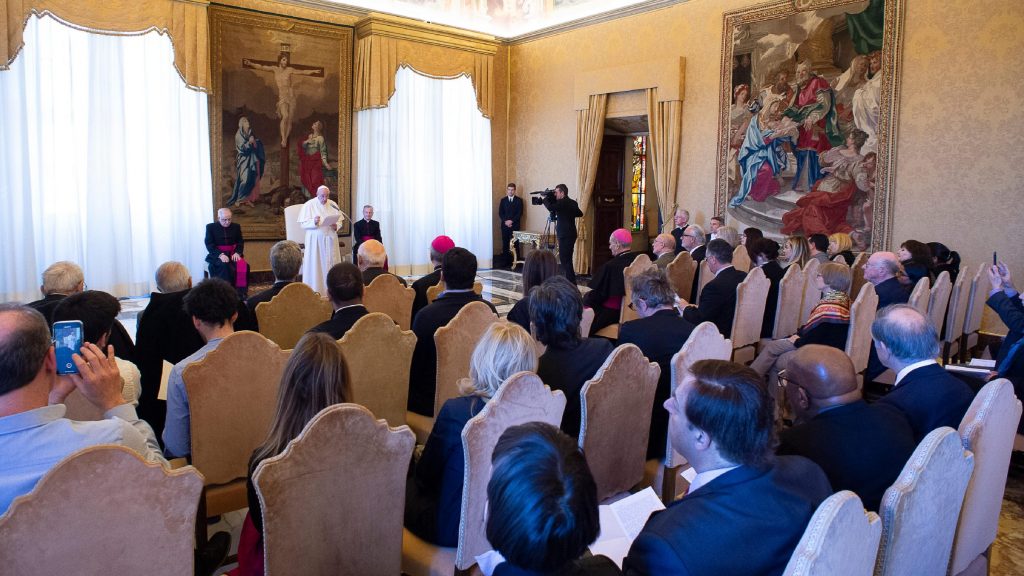Shirking responsibilities in educating future generations has led to a collapse in cooperation among families, schools and social, cultural and religious institutions, Pope Francis said.
The breakdown of this "educational compact" can only be "fixed through a renewed universal effort of generosity and cooperation," the pope said Feb. 7 in a talk to educators and education specialists meeting at the Pontifical Academy of Social Sciences.
"This breakdown in the educational compact means that society, the family and the different institutions called to educate have all delegated the decisive task of education to others," he said. "In this way, the various basic institutions and the states themselves have evaded their responsibilities and faltered in this educational compact."
To overcome this, he said, individuals and institutions must form a new alliance to educate young people not only in their own traditions and culture but in relation to others so that "they can develop their own self-understanding by encountering and appropriating cultural diversity and change."
"This will enable the promotion of a culture of dialogue, encounter and mutual understanding, in a spirit of serenity and tolerance," the pope said. The goal is "an education that enables young people to identify and foster true human values from an intercultural and interreligious perspective."
Pope Francis told participants at the Feb. 6-7 conference that their theme, "Education: The Global Compact," emphasized a "need to join forces in order to achieve a broad educational covenant" with the goal of mending human relationships and creating "a more fraternal world."
The pope applauded the United Nations' inclusion of education in its Sustainable Development Goals, because equality "has not yet been achieved in our world."
Poverty, discrimination, climate change, indifference and exploitation, he added, "are an almost insurmountable wall preventing the attainment of the goals of sustainable and guaranteed development proposed by the world's peoples."
"Concern for education is concern for future generations and for the future of humanity. It is a concern profoundly rooted in hope and it calls for generosity and courage," the pope said.
Families, he continued, also must be given a "proper place" in a new educational alliance and their participation in educational projects "is essential to an integral, focused and universal education."
Praising teachers, who he said are "always the worst paid," the pope expressed his hope that, no matter the odds, they would "persevere with courage and tenacity" and continue to be "artisans who shape the coming generations."
In a new educational compact, he said, teachers must be "acknowledged and supported by every means possible."
"If our objective is to offer each individual and every community the level of knowledge needed to enjoy their proper autonomy and to be capable of cooperating with others, it is important to ensure that educators are trained in accordance with the highest qualitative standards at every academic level," he said.
Pope Francis encouraged conference participants to continue reflecting on the challenges facing the education of young men and women in the world and "to lay the foundations for a more humane, healthy, equitable and prosperous society."
"What you seek to accomplish has to do not with the future but with the present, here and now," the pope said.

